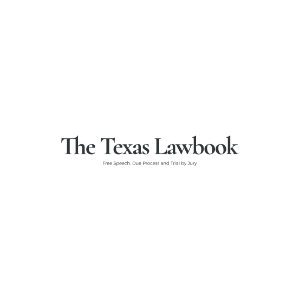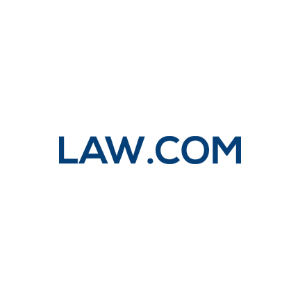Determining who is at fault in a car accident at an intersection can often be easier because there are strict rules about who has right of way and who needs to yield at intersections. However, everyone’s story about what happened might be different, and it may be difficult to parse out who was truly responsible – or there might be multiple people to blame for mistakes that contributed to a crash at an intersection.
If you or a loved one was injured in a car accident at an intersection in the Dallas area, talk to an attorney about your injury case. An attorney can help argue your case in court and fight insurance companies to get you compensation for serious injuries, medical bills, and other damages. For help with your case, call The Queenan Law Firm’s Dallas intersection accident lawyers today at (817) 774-9627. Our attorneys offer free legal consultations.
Types of Car Accidents at Intersections in Dallas
Intersections come in many different shapes, and some have downright confusing signs and lane shifts. Especially in the city, where there might be buses, pedestrians, cyclists, and other people and vehicles drawing your attention from the road. Many car accidents at intersections can be grouped into the following “types” of accidents, and blame can often be assigned to particular drivers in the following common scenarios:
Left Turn Accidents
When a driver is waiting to make a left turn, they are supposed to signal, slow down, yield to all oncoming traffic, and avoid blocking the traffic behind them. If a car brakes suddenly to make a left without signaling, cars behind them could be forced into an accident. If they do not yield to oncoming traffic, they could pull out and get hit by those vehicles. In most of these kinds of cases, the person making the left turn without proper care and caution would be at fault, but a driver who hits them from behind might also be at fault for following too closely.
Right Turn Accidents
If you want to make a right turn at an intersection, you need to signal, slow down, pull up, and turn. Many accidents happen when people make right turns on red, usually because they fail to stop at the red light first or they enter the intersection at a dangerous time when oncoming traffic is making a left turn onto the same road with a green arrow signal. Intersections with right turn ramps could allow traffic to avoid stopping to make a right turn, but then you have to yield properly to cars already on the road and merge carefully. When accidents happen involving someone making a right turn, it is often their fault unless the other driver was speeding or making a left turn.
Four-Way Stop Accidents
Drivers often get confused about who goes next at a four-way stop. This can lead to accidents if a driver pulls out when it is not their turn or tries to intentionally skip ahead in order. Drivers might also see the stop signs on the cross street and not realize that their road also has stop signs, blowing through the intersection without stopping at all. Typically, any driver who pulls out of a stop sign when it is not their turn is usually at fault for the resulting accident.
Red Light Accidents
Drivers who run red lights are commonly responsible for the resulting crash. When an accident occurs at an intersection, one car usually “T-bones” the other by striking it in the side. If the car that was hit was in the intersection when they had a red light, then they would be at fault even though they were the one who was hit. Alternatively, if the car that did the hitting had the red light, then its driver would be at fault.
Roundabout and Traffic Circle Accidents
The Dallas area has a few traffic circles (or “rotaries”) and roundabouts. Larger circular roads that have multiple entry and exit points are usually referred to as “traffic circles,” while smaller, compact circles are known as “roundabouts.” These intersections can be confusing for many since they continually move and avoid the need to stop at a light, and because they have multiple roads converging on one point. When entering a roundabout, you yield to the cars already there and turn right. Once you are in the circle, you might be able to change lanes, but you will always continue to circle in the same direction and exit again to the right, from the right lane.
This requires drivers to control their speed, signal properly, yield when entering the circle, and, of course, drive in the same direction. However, drivers unfamiliar with the intersection or the area might make sudden stops and turns, potentially causing accidents. Usually, those drivers would be at fault unless there were other dangerous things happening at the same time.
Getting Compensation for Car Accidents at Intersections in the Dallas Area
While you might be able to rely on auto insurance to cover the cost of vehicle damage in some low-speed accidents or fender benders, high-speed crashes and intersection accidents that cause severe injuries might be too expensive to cover this way. In many cases, a lawyer can help you file a lawsuit in court to get full compensation for your medical bills, lost wages, and pain and suffering.
Most insurance companies do not cover pain and suffering, so to get full compensation, you might have to go to court. Talk to a lawyer about how to seek compensation in your case and what your claim might be worth before you accept a dime from an auto insurance company.
Call Our Dallas Intersection Car Accident Attorneys for a Free Case Consultation
If you were injured in an auto accident at an intersection in Dallas, you could be looking at expensive medical bills, lost wages, and pain and suffering. Talk to a lawyer for help determining who was at fault in your accident and how to best seek compensation for your injuries and the damages from your crash. For help with your case, call The Queenan Law Firm’s Dallas intersection accident lawyers today at (817) 774-9627 to set up a free legal consultation.






